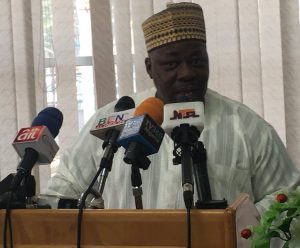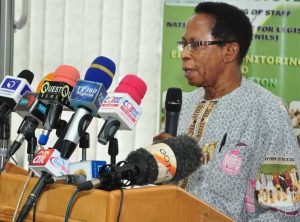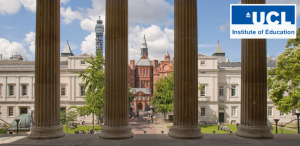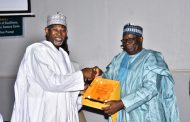Key stakeholders in Nigeria will have the opportunity of hearing what a research project has been able to establish on The University System, Inequality and the Public Good in Nigeria. It will be happening at a Workshop to that effect on January 24th, 2019 when Professor Jibrin Ibrahim, the Nigerian researcher of a University of London programme presents emerging findings on the subject matter.

Prof Jibrin Ibrahim

Ghana is one of the four African countries covered by the research
It is part of a cross-country research being conducted by the Institute of Education of the University College London which is itself a part of the University of London. A statement inviting stakeholders to the National Universities Commission, (NUC) venue of the occasion posits that Nigeria has had “an intense debate and a long track record of mobilisation to ensure that the university serves the public good” and that the meeting would provide an opportunity to review where the country is now on the issue.

Prof Asisi Asobie of the Dept of Political Science @ Nasarawa State University and a discussant at the impending workshop

Prof Nuhu Yaqub, another discussant
Top Nigerian social scientists, university administrators and academics such as professors Nuhu Yaqub, Asisi Asobie, Kyari Mohammed and Adigun Agbaje would be on hand to chair a session or act as discussants of the complicated issue of the concept of public good when connected to the university system in contemporary Nigeria. They would be joined in the process by non-Nigerian academics providing overarching frameworks. Nigeria is one of the four African countries being studied, the others being Ghana, South Africa and Kenya.

 The concept of public good itself has remained at the heart of governance controversy in the post Cold War in the tough tension between different conceptions and practices around it. This tension is particularly between those who think it should be inviolate and the forces and interests determined to remove it as a directive principle in public policy. Although Martin Wolf’s January 24th, 2012 article in the Financial Times (of London) spoke more specifically to global governance, he is to date, what many would take as the referent in this debate. Contending that the history of civilisation is the history of public goods, Wolf’s piece titled “The World’s Hunger for Public Goods” went on to also assert the contradiction between the market economy and the idea of public goods and then pointing out how the states on which the principle of public goods has rested throughout human history are, in his words, unpopular, overstretched and at odds.
The concept of public good itself has remained at the heart of governance controversy in the post Cold War in the tough tension between different conceptions and practices around it. This tension is particularly between those who think it should be inviolate and the forces and interests determined to remove it as a directive principle in public policy. Although Martin Wolf’s January 24th, 2012 article in the Financial Times (of London) spoke more specifically to global governance, he is to date, what many would take as the referent in this debate. Contending that the history of civilisation is the history of public goods, Wolf’s piece titled “The World’s Hunger for Public Goods” went on to also assert the contradiction between the market economy and the idea of public goods and then pointing out how the states on which the principle of public goods has rested throughout human history are, in his words, unpopular, overstretched and at odds.
It would not be surprising if attention is more on ideological disputation over public goods practice in Nigeria than on the role of the universities in that regard at next Thursday’s session.


























